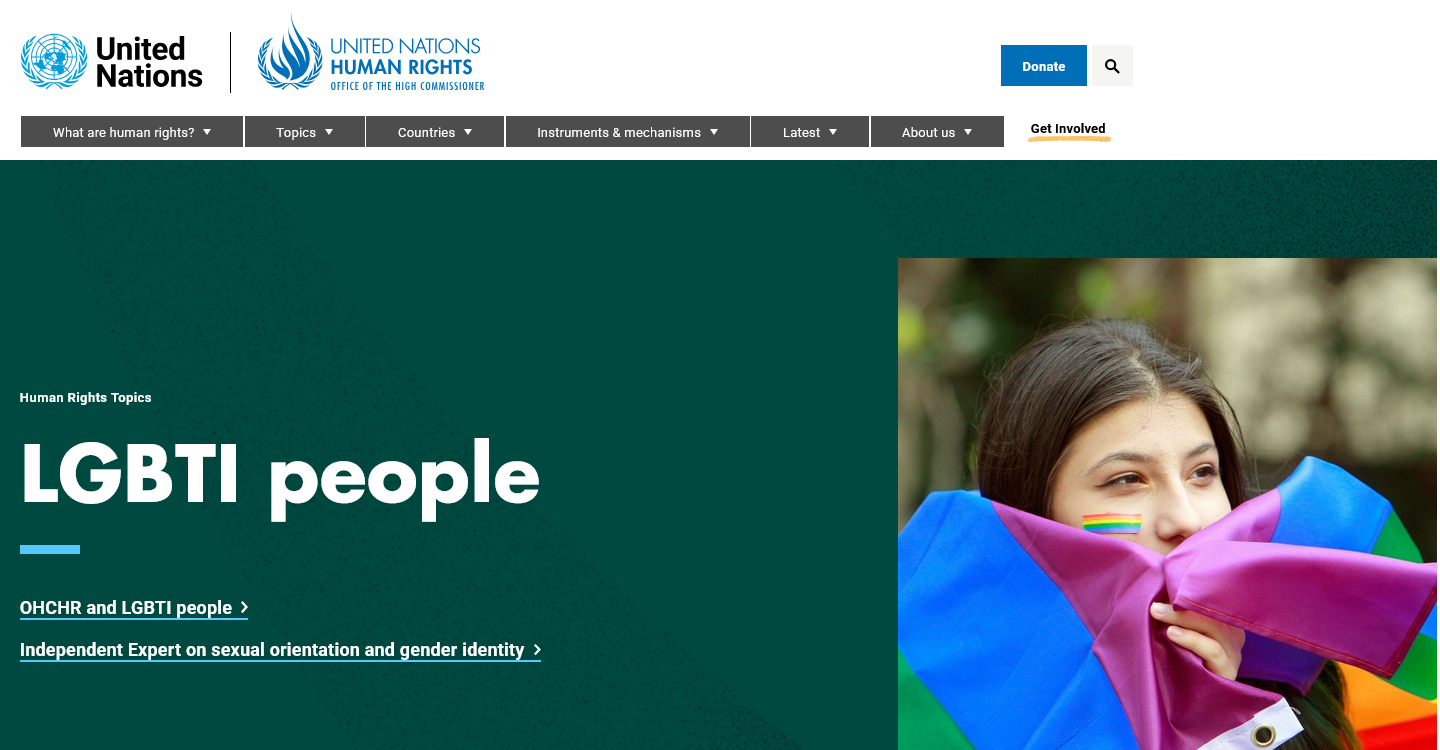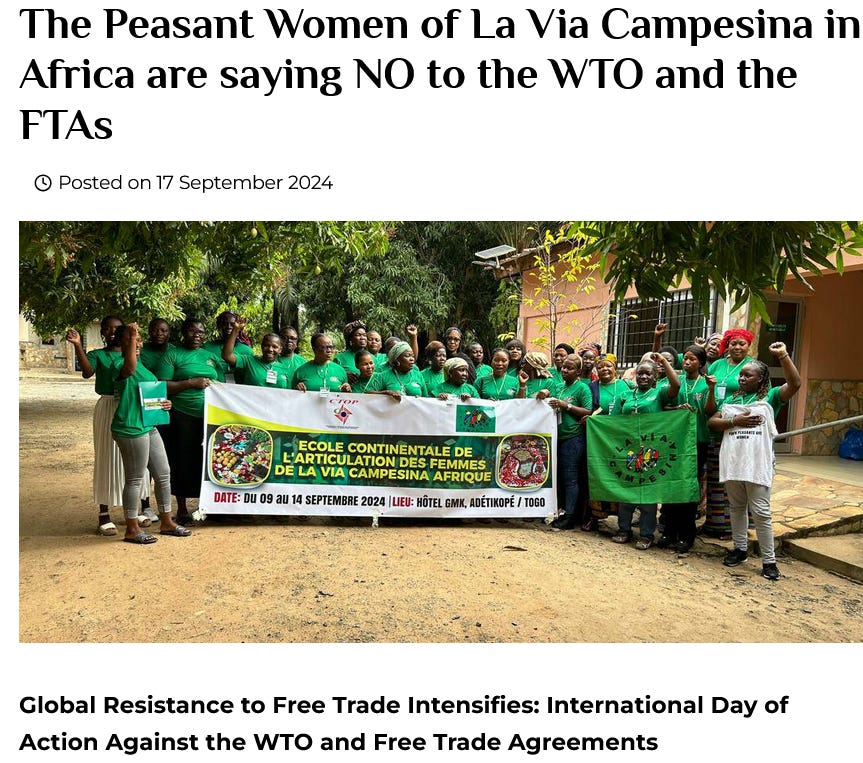Our current international order—built on institutions like the United Nations, World Trade Organization, and International Monetary Fund—emerged from the ashes of World War II with the aim of preventing global conflict and fostering cooperation. While it has succeeded in some areas, such as reducing large-scale wars between major powers, many of its critics, myself among them, argue it has also eroded national sovereignty, deeply damaged the economies of most of the developed and under-developed world, and favored powerful individuals and organizations associated with liberalism over smaller states and national communities. To round it all out, these systems are now as obsessively focused on the promotion of liberal social issues as many Western governments.
The United Nations, to name but one example, promotes transgender ideology and backs the idea that chemical and medical interventions can somehow transform a man into a woman or vice versa despite this being a prima facie falsehood.

The UN System and its affiliated organisations also spend untold amounts of money on promoting feminist ideology and is at the forefront of promoting mass immigration against the democratic will of most Western nations.
The Case for Change:
National self-determination—the right of a people to freely determine their political status and pursue their economic, social, and cultural development—has long been a principle enshrined in international law, notably in the UN Charter. Yet, in practice, the current order often undermines this ideal. Africa is a fantastic example, WTO led export models and the subsequent free trade agreements have severely undermined the African agricultural sector.

Local farmers are advised by global institutions to produce a small range of export crops while their governments import food products from abroad, generally from the heavily subsidized agricultural industries of the Western world (which themselves favour large-scale over family farm production). These imported agricultural products expose African states to intense global headwinds and undermine their ability to function. A example of these headwinds is when the war in Ukraine broke out. Africa was left teetering on the brink of famine, and it took a concerted international effort to ensure that wheat exports continued to flow to the continent all the while prices sparked quite dramatically.
Nationalists should certainly not advocate for a cessation of all trade, though. Egypt has an astonishingly fast growing population that far outstrips its ability to produce food and Nigerians have a taste of Norwegian stockfish that can only be met by imports. These are legitimate cases for trade. Yet, it would be far better for African economies and populations if their food was produced, processed, and sold locally. Just recently Brazil, another country that imports massive amounts of wheat off the global market, developed a variety of ‘tropical’ wheat that can be grown in savannah-like conditions. This is a perfect product for African agriculture and rather than an international system which pushes an export model nationalists should champion a global system a system that works to bring countries as close to food self-sufficiency as possible.
In other cases, international institutions actively work to undermine the national character and demographic composition of countries. The International Organisation for Migration (IOM) provides debit cards, cash, and other material support to illegal immigrants attempting to cross into the United States while receiving 40% of its budget from the American taxpayer.

No international organisation should undermine the will and desire of a nation in such a manner. Many people on the right are also aware that the United Nations studies the subject of replacement migration and while not an outright advocate certainly seems to endorse the idea of ever-increasing immigration.
And of course, there is the all-too-neoliberal international financial system centered on organisations like the International Monetary Fund (IMF) and the World Bank Group. I again look upon Africa where exorbitant interest rates, forced privatisation, demands for austerity, and other structural ‘reforms’ pushed by the IMF have kept the continent in a perpetual debt spiral. Africa lacks private capital markets let alone access to Western capital markets (which are essentially global capital markets) because of this reliance on and encouraged by the IMF and other international institutions. Much of this financing is underwritten by Western countries, meaning Western taxpayers, without their knowledge and certainly without their consent.
Critics of my position will counter that all of the above is supposedly in the interest of Western countries and publics, yet I fail to see how this is true. Perpetually funding the developing world with debt and foreign aid cannot possibly be in the long-term interest of Western countries, not least because these chronic crises and the lack of steady development is a massive factor in pushing third-world populations into the West.
If we want to stop massive migration flows into Western countries and allow the developing world to stand on its own two feet nationalists need to back a vision of the international order which uses its capital and expertise to enable nations to thrive. I want to see an Africa that can feed itself and a South America not in perpetual economic crisis—a world where migrant caravans and the storming of borders become not only impossible but unnecessary.
Principles of a New Order:
A reimagined and nation-state focused international order needs three pillars to serve as an alternative to the faltering liberal order we see today:
1. Foundational Self-Sufficiency (FSS): The idea is to establish three crucial areas of self-sufficiency for all nations. International institutions would be reworked to take current successful national models and adjust and implement them alongside national governments. The three areas of focus are:
a. Electricity Generation/Energy Sovereignty
b. Agricultural Production/Food Sovereignty
c. Strategic Medical and Medicinal stockpiles.
All of these goals are not only desirable but achievable. Rwanda has already implemented a successful electrification model that has taken 6% of Rwandan households from having access to electricity to 75% having access as of March 2024. This project was rolled out across 15 years and the government plans to complete it in 2025. The country has also focused on domestic energy production rather than importing energy. 50% of the country’s energy came from hydro power, 8% from its solar arrays, and 20% from methane extracted from within Rwanda’s borders. This is an incredibly high level of energy self-sufficiency for a developing state and a model that should be augmented and implemented as widely as possible by international institutions. This is most definitely a most pressing issue than “gender-sensitive police reform in post-conflict societies”.
2. Strategic Regional Integration (SRI): when countries with similar populations, cultures, and histories cannot rely on their own domestic production they must create regional organisations to supplement their shortfalls. Groups like ASEAN, the African Union, and the European Union must be reworked and transformed from globalist liberal institutions to institutions that provide services to their member-states.
Africa has led the way in this example in the wake of the COVID-19 Pandemic by establishing the African Medical Supplies Platform so that countries and corporations have access to locally produced or available medical equipment. This is a model that should be institutionalised implemented on the regional level across the globe and expanded into strategic national and regional stockpiles of crucial equipment and medicines.
This same model should be expanded to security. The West leads the way in examples of failed attempts to intervene beyond its purview. Interventions in Libya, Iraq, Syria, Haiti, and other countries have led to repeated disasters, many civilian deaths, and the expenditure of untold sums. Global institutions should be reworked to support regional peacekeeping and security frameworks that rely on neighbouring states with similarities to the country(ies) in crisis.
3. Strategic Global Cooperation (SGC): global institutions such a the United Nations or IMF would be reworked and scaled down to focus on only a few strategic sectors. Their social sciences and other liberally inclined mandates would be done away with. The United Nations would reorient to its core missions of providing help to refugees, tackling global security challenges, and protecting our common heritage. Programs to reduce plastic waste entering the oceans matter significantly more than programs designed to get more women and girls into factory work in the third world.
Our global financial infrastructure would need to be reworked so that rather than forcing countries into a dependence upon their debt and borrowing mechanisms they facilitate access to mature capital markets that hold them to account for excessive borrowing and do not force undemocratic neoliberal reforms upon developing economies. In a similar vein it will free developed countries from having to constantly foot the financial bill to underwrite the loans and grants given to the third world.
An example of this is the push by Barbadian Prime Minister Mia Mottley’s push to ensure that developing countries have access to corresponding banking so that they can privately fund development priorities and economic growth.
We might also see Food and Agriculture Organization place less priority upon “investing in the future of women in agrifood systems” and do something more concrete such as assist Nigeria in procuring the 72,000 tractors its farmers need to properly work the land.
How to Get There
Transitioning to this order requires dismantling and reworking much of our international system, but this process is already well underway and rather than allowing it to become more liberal the nationalist movement must present an alternative. Here’s a roadmap:
- Reform Existing Institutions
Start with the WTO and IMF. Amend their charters to prioritize national development goals over free-market orthodoxy. For instance, allow tariffs or subsidies for infant industries in developing nations without retaliation, and tie IMF loans to long-term self-sufficiency projects rather than austerity. Use global financial institutions to facilitate the introduction of third-world markets to private capital markets and ween them off of international institution’s balance sheets. - Cut out the Liberalism
Radically reborn, rebrand, or outright abolish organisations that worry more about feminism, LGBTQ issues, migration, or other liberal concerns than they do the food on peoples plates, the lights in their homes, or the security of national borders. International institutions should absolutely continue to provide emergency food aid, shelter for refugees, and ensure that global diseases are stopped in their tracks but none of these priorities require the socially progressive outlook that has infected the UN System and other international organisations.
- Leverage Technology
Advances in 3D printing, vertical farming, battery storage technology, recycling, and modular nuclear reactors already make self-sufficiency more feasible. An international fund could accelerate their adoption, especially in smaller or resource-poor states.
This may seem an odd concern for nationalism, given that liberals tend to paint the ideology as singularly hateful or inward looking. In truth, Western and other developed nation’s will continue to shoulder global burdens and deal with large migration flows until the development bottleneck in the so-called third-world is dealt with. Additionally, we should support minimum levels of prosperity and standards of living for all mankind. I do not want to see an African child starve because of the neoliberal policies of the postwar order anymore than I want to see a German child raped by an ‘economic migrant’. We can solve both of these problems by reworking the international system from one of failed liberal charity to one focusing on the development of nations and peoples.
